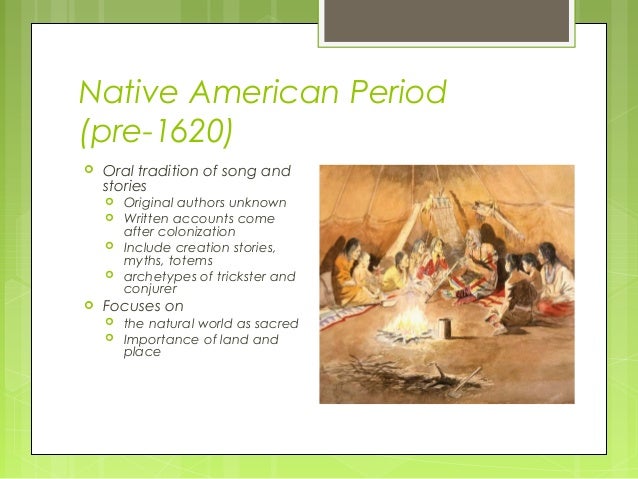Literary Terms
Hello Students,
Below, you will find a copy of the literary terms powerpoint and handout. Use these terms to complete the literary terms booklet that is due this Friday, 3/10/17. Also, remember that these terms will appear on your common assessments and final exam; so learning them is critical to your grade.
literary-terms-powerpointliterary-terms-notes-sheetliterary-terms-powerpoint
Week of 2/6/17
American Literature
This week we will continue our unit on Puritan/Colonial literature. Remember that your literary terms project is due Monday, February 13. You should be prepared to present it. I have attached the terms and directions below.
Literary Terms Project directions:
Now that you have completed all of the readings for this unit, it’s time to put your knowledge of the literary terms to the test. Not only is it important to be able to identify literary terms within a piece of literature, but it is also important to understand the writer’s purpose in utilizing that writing technique as well as the significance of the technique to the piece as a whole.
Your task is to create a Literary Terms PowerPoint presentation. You will use all 9 Key Terms from this unit. More than likely you will need two slides per term. Once you create a title slide, you will have approximately 19-20 slides.
For each term, you will include a specific text reference from one of the pieces from this unit that utilizes the term. For example, if my term is “simile,” I will want to find an example of a simile in one of the stories or poems we have read. You will type that example onto the slide. In addition, you need to explain the effectiveness or significance of that example as it relates to the piece. Lastly, you need to create your own sentence(s) utilizing that literary term. Please include a picture to go along with your example.
Literary Terms:
- Puritan Plain Style: a way of writing that stresses simplicity and clarity of expression
- Archaisms: words that are no longer in general use
- Allusion: a reference to someone or something that is known from history, literature, religion, sports, politics, science, or some other branch of culture
- Inversion: a reversal of the normal word order in a sentence or phrase
- Anaphora: the repetition of a word or words at the beginning of a line, clause, or sentence
- Myth: traditional stories passed down from generation to generation
- Slave Narrative: autobiographical account of life as a slave
- Conceit: an eloborate, extended metaphor
- Apostrophe: a figure of speech in which a speaker directly addresses a person who is not there or a personified object, quality, or idea
Slide examples attachment:
Literary Terms Project rubric:

Week of 1/23/17
American Literature: Throughout the semester , we will analyze how literature reflects and shapes societies. This week and part of next, we will look at how the literature of Native Americans reflects their societies and how it later helped to shape that of the Colonists.

Essential Questions of the Week
- How does the literature of early Native Americans reflect their values and beliefs?
- How have the values, customs, and ideals of Native Americans had an effect on society today and throughout time?
Monday-Thursday
- Students presented and/or evaluated literary period posters.
- Students read p. 18, defined the bold words, “origin myth” and “archetypes.” Then they wrote the vocabulary words and definitions at the bottom of the page.
- Students watched the following video and identified the types of literature specific to Native Americans (i.e., letters, journals, songs) and the source of their inspiration:
- Students discussed some specifics of Native American culture and created pictograph stories. (see link below)
Click to access nativeAmericanPictograph.pdf
- Students read creation myths by various Native American tribes (“The Earth on the Turtle’s Back,” p. 20 and questions 2-5, p.23; “When Grizzlies Walked Upright,” p.24; and from “The Navajo Origin Legend,” p.27 and questions 2-6, p. 28.
- Students completed the common assessment (Wednesday).
Thursday- Friday
- Students will identify archetypes, customs, and values across the myths.
- Students will work in groups to write their own creation myths with story boards.
Week of 1/17/17
Students,
Welcome to American and/or Multi- cultural Lit. I look forward to a wonderful semester. Below, you will find copies of your class’s syllabus. Please refer to it/them throughout the semester as needed.
A. Ellis
Syllabi
Multi-cultural Lit. Syllabus: multi-cultural-lit-syllabus-2016-2017
American Lit. Syllabus: ellis2016-2017-american-literature-syllabus-2
Monday
American Lit.: In addition to going over the syllabus, students will watch an introductory video that gives an overview of the various literary periods of American Lit. (See below for the link). Finally, students will work in groups to research one of the literary time periods.
Multi-cultural Lit.: In addition to going over the syllabus, students will listen to a shor introductory video (there are no pictures/images) and reflect on what multi-cultural lit. is and why we should study it. In addition, we will discuss some email etiquette and practice. The video we will use is also below.
Week of November 7, 2016
- This week, we are continuing our unit on Romanticism. We are completing our analysis of Wordsworth poem “The World Is Too Much with Us” by William Wordsworth. A copy is posted below. The sheets are attached and due by Wednesday, November 9, 2016.
- On Wednesday and Friday, we will work on transcendentalism.
- On Thursday, we will go to the media center for a lesson on creating citations.
- – (Here is an attachment with the TP CASTT analysis sheets: tp-castt-worksheets) – (Here are links to YouTube videos about transcendentalism.)
|